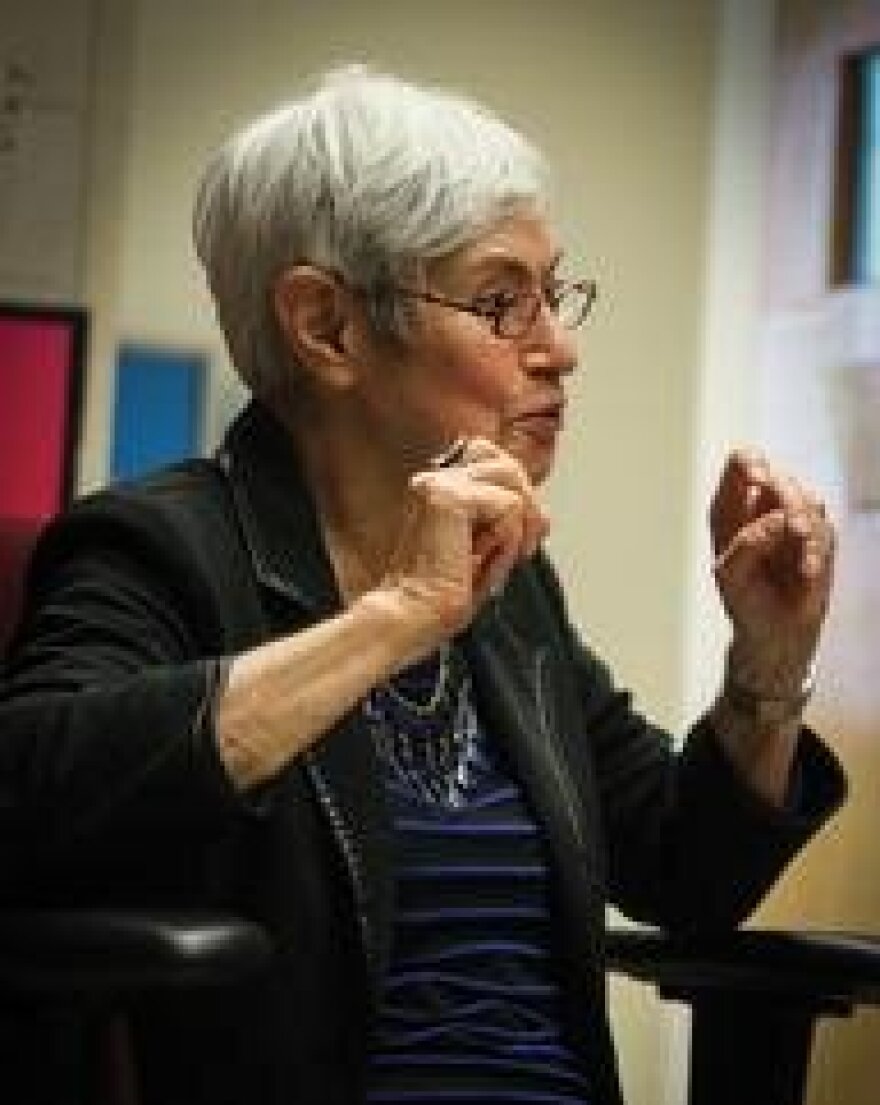Renée Fink was born two years before WWII to Jewish parents in the Netherlands. In 1940 when the Germans invaded Holland, life did not change dramatically for Fink’s family, at least not right away.
Instead the changes were incremental. First, her family was forced to leave their seaside home in Scheveningen, Holland to move further inland. Jews were soon forced to abandon their professions, not allowed in public parks and could only shop at stores during limited hours.
When she was four years old, members of the Dutch resistance helped Fink go into hiding. They smuggled her on the back of a bicycle to a Christian family who took her into custody. With a new name and a new identity, Fink was one of the lucky ones who survived the war. Her parents were not so lucky. Today Renée Fink dedicates her time to making sure others hear her story.
She joins host Frank Stasio in studio and shares her fears about the rise of hate and division in the U.S., and about her concerns that the lessons of the Holocaust are not being passed on.
Interview Highlights
On making hard decisions to survive:
As 1942 approached, Jews had to find either a hiding place or be prepared to be taken in raids that we called razias in Holland … In 1942, you were either taken to Westerbork, which was a transit camp on the way to the death camps, or you made yourself disappear with the help of the Underground — which we called it the Underground in Holland, but it's better known in a larger sense as The Resistance.
On not knowing why she was sent to live with strangers:
My parents went to hide on a houseboat in one area, and I being an only child went alone to a family. I didn't know why. People didn't talk for two reasons: children were not thought of necessarily as sentient beings in the way we are now — we were children. But most important, there were secrets, and knowledge was dangerous. And so nothing was explained to me, and it might have been too upsetting.
On German raids at the van den Brink family home where she was disguised as a Christian:
They were searching for Jews. They had raids in the cities, on homes in Jewish quarters, and they took Jews [in] trucks and took them away. But in my little town where I was hiding, they went from house to house also looking for Jews. And at other times Germans came, and they just raided houses, I don't know if they were always looking for Jews, and in this case, me, or if they were looking for an extra blanket or a radio. You could get into very big trouble. They could shoot you on the spot if they were so inclined if you had a radio. It was all forbidden. In the end, they took whatever they wanted from the house. So we were colder and hungrier.
On being mistreated at her relatives' house in the U.S. after the war:
I was no longer an equal in any household after the war. So I can tell you unequivocally that my earliest years with my parents, plus all the war years were my absolute happiest childhood years. And this is true for many child survivors. And this is what is so relevant, I think, about the fact that war continues. And there is a world full of survivors in Africa, in Asia, in parts of Europe, with traumatized people walking around, having children.
On the urgency she feels to share her story:
I feel compelled not to turn any requests down. I began many years ago, even before the Holocaust Speakers Bureau with a particular teacher in one Durham middle school. And these were young children. I just had to tell this story. [I] had to make people aware of how evil and ugly war is, and it was never about me. I don't want to focus on me. And this whole hour with you, talking with you, is a pleasure. But the focus on me feels somehow not quite correct. It was to enlighten people about the signs, and we are living in the midst of so many of these danger signs today.



